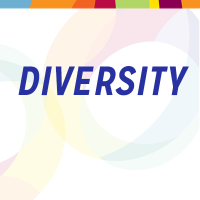Computer-Aided Personalized Education Visioning Workshop
The following post was co-authored by Andrew Lan, a PhD student in the Electrical and Computer Engineering Department at Rice University. Andrew recently attended the Computing Community Consortium Computer-Aided Personalized Education Workshop in Washington, DC.
recently attended the Computing Community Consortium Computer-Aided Personalized Education Workshop in Washington, DC.
On November 12th and 13th the Computing Community Consortium (CCC) held a visioning workshop on Computer-Aided Personalized Education (CAPE) in Washington, DC to address these challenges. The workshop brought together more than 50 researchers from academia, industry, and the government in order to foster new collaborations among participants from diverse disciplines and to suggest new research directions in computer-aided personalized education.
The workshop focused around three broad themes: tools for personalized education, such as tutoring tools for automatic assessment, personalized feedback, and adaptive content generation for a variety of subjects, with an emphasis on building tools applicable across a wide range of STEM domains; modes of learning, involving the cognitive science of learning and human-computer interaction, how different students learn, when intervention is effective, and how to measure the success of educational tools; and infrastructure to facilitate large-scale deployment of educational tools, for data sharing , and experimentation and grand challenges.
Day one of the workshop included three panel sessions each based around one of the three themes. Each panel consisted of five or six panelists who each gave a short presentation about their research as it related to the topic and then a question and discussion portion between the panel and the broader workshop group. At the end of the day there was a demo and poster session, which provided an opportunity for participants to display their tools and research and spark further conversation.
Day two of the workshop saw participants split into working groups around each theme in order to further assess the current state of educational technology and what the future of innovation holds. A consensus across the working groups is to encourage more collaboration between computer scientists and cognitive scientists. The development of personalizing education tools will benefit from integrating cognitive science principles, and cognitive science research can also benefit from these tools by analyzing student data to gain better insights into how students learn.
More information about the workshop can be found on the event webpage. A detailed white paper outlining the challenges and possibilities of further developing computer-aided personalized education is being written and will be released on this blog in the coming months.








